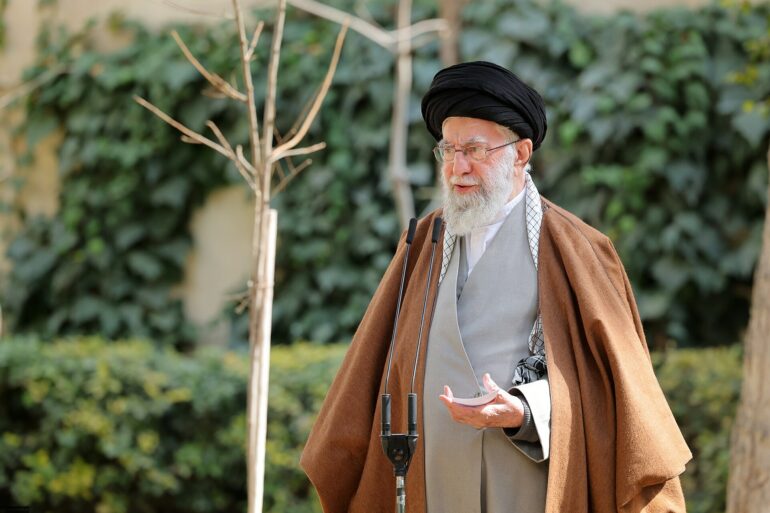Iran’s Supreme Leader, Ayatollah Ali Khamenei, has now reportedly publicly dismissed a recent U.S.-backed proposal aimed at limiting Tehran’s nuclear activities, signaling a continued stalemate in efforts to revive nuclear diplomacy between the two nations.
In a nationally broadcast speech marking the anniversary of Ayatollah Ruhollah Khomeini’s death, Khamenei criticized the U.S. proposal as an affront to Iranian sovereignty.
He asserted that the demands would effectively dismantle Iran’s nuclear program, which he framed as a cornerstone of the country’s independence and scientific progress.
“The Americans want to strip us of our enrichment capabilities,” Khamenei said. “That is not something the Islamic Republic will ever accept. We will continue to enrich uranium as needed for our national interests.”
The latest proposal, reportedly delivered through Omani intermediaries, called on Iran to limit uranium enrichment to civilian-grade levels and surrender its existing stockpile of highly enriched uranium.
In exchange, the U.S. offered limited sanctions relief and some humanitarian incentives.
Iranian officials, however, saw the offer as insufficient and dismissive of Iran’s demands for broader sanctions relief and security guarantees.
Iran currently enriches uranium to levels as high as 60 percent, far beyond the limits set under the 2015 nuclear agreement and just shy of weapons-grade.
The International Atomic Energy Agency has warned that the growing stockpile and lack of access to key facilities are fueling international concerns over the program’s direction.
Tehran maintains that its nuclear program is solely for peaceful purposes. Still, the decision to reject the U.S. proposal underscores a broader strategy of resistance, particularly as Iran continues to develop its ballistic missile capabilities and curtails cooperation with international nuclear inspectors.
Negotiations between Iranian Foreign Minister Abbas Araghchi and U.S. envoy Steve Witkoff have stalled after five rounds of indirect talks.
While both sides have signaled a desire to avoid conflict, the fundamental divide over uranium enrichment, sanctions, and mutual distrust has widened in recent months.
President Masoud Pezeshkian has offered cautious support for diplomacy but has echoed the Supreme Leader’s stance that any deal must preserve Iran’s nuclear rights and include concrete economic benefits.
Khamenei’s speech suggests that while Iran remains open to negotiations in principle, it will not compromise on what it views as its sovereign right to pursue nuclear technology.
With diplomatic momentum fading and regional tensions rising, the risk of escalation grows. The impasse leaves the international community grappling with how to contain Iran’s nuclear ambitions without triggering broader instability in the Middle East.
[READ MORE: Pollster Reveals GOP Surging in Shocking Category Against Dems]



